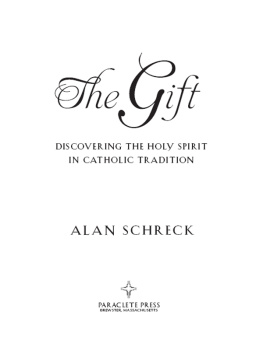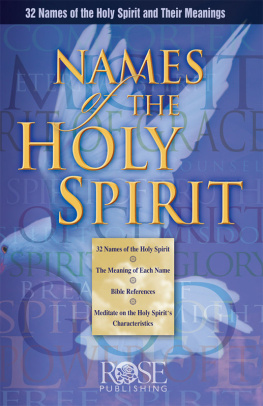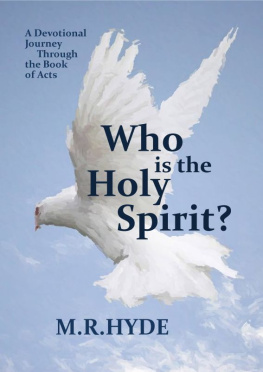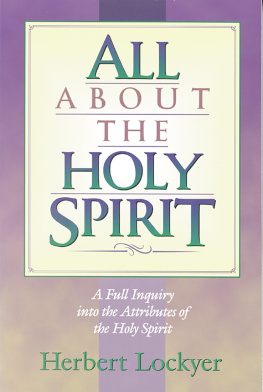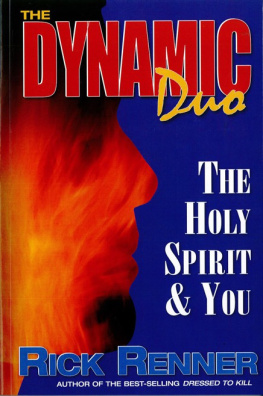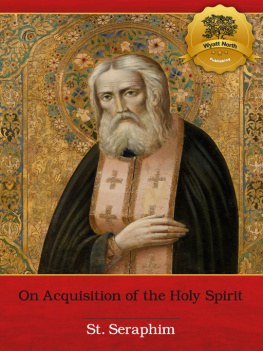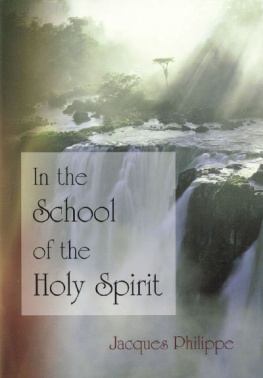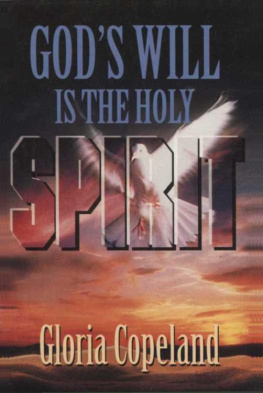About Paraclete Press
Who We Are
Paraclete Press is a publisher of books, recordings, and DVDs on Christian spirituality. Our publishing represents a full expression of Christian belief and practicefrom Catholic to Evangelical, from Protestant to Orthodox.
We are the publishing arm of the Community of Jesus, an ecumenical monastic community in the Benedictine tradition. As such, we are uniquely positioned in the marketplace without connection to a large corporation and with informal relationships to many branches and denominations of faith.
What We Are Doing
B OOKS
Paraclete publishes books that show the richness and depth of what it means to be Christian. Although Benedictine spirituality is at the heart of all that we do, we publish books that reflect the Christian experience across many cultures, time periods, and houses of worship. We publish books that nourish the vibrant life of the church and its peoplebooks about spiritual practice, formation, history, ideas, and customs.
We have several different series, including the best-selling Paraclete Essentials and Paraclete Giants series of classic texts in contemporary English; A Voice from the Monasterymen and women monastics writing about living a spiritual life today; award-winning literary faith fiction and poetry; and the Active Prayer Series that brings creativity and liveliness to any life of prayer.
R ECORDINGS
From Gregorian chant to contemporary American choral works, our music recordings celebrate sacred choral music through the centuries. Paraclete distributes the recordings of the internationally acclaimed choir Glori Dei Cantores, praised for their rapt and fathomless spiritual intensity by American Record Guide , and the Glori Dei Cantores Schola, which specializes in the study and performance of Gregorian chant. Paraclete is also the exclusive North American distributor of the recordings of the Monastic Choir of St. Peters Abbey in Solesmes, France, long considered to be a leading authority on Gregorian chant.
DVDs
Our DVDs offer spiritual help, healing, and biblical guidance for life issues: grief and loss, marriage, forgiveness, anger management, facing death, and spiritual formation.
Learn more about us at our website:
www.paracletepress.com , or call us toll-free at 1-800-451-5006.
Also in this series...
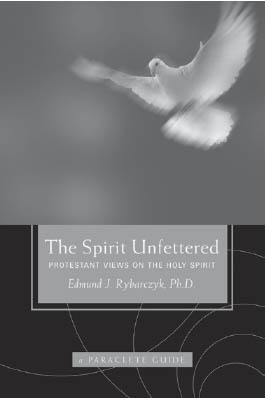
The Spirit Unfettered
Protestant Views on the Holy Spirit
by Edmund J. Rybarczyk
$15.99 Trade paperback
ISBN: 978-1-55725-654-6
This clear guide will help you understand what is distinctive about Protestant perspectives on who the Holy Spirit is and what the Holy Spirit does in our lives.
The introduction broadly compares Protestant views on the Holy Spirit with Roman Catholic and Eastern Orthodox models. The understandings of important theologians and figures in Protestant tradition such as Luther, the Anabaptists, Wesley, Pinnock, and Barth as well as living theologians such as Jurgen Moltmann, Wolfhart Pannenberg, and Michael Welker are also explored.
We can be grateful to God that so many Christians in recent years have experienced the power of the Holy Spirit in new ways. But the time is long past for the whole Church to claim that renewing power, both theologically and experientially. This fine book points us to the theological resourcesdrawn from a variety of Christian traditionsto move ahead with that urgent task!
Dr. Richard J. Mouw, President
Fuller Theological Seminary
Available from most booksellers or through Paraclete Press:
www.paracletepress.com ; 1-800-451-5006.
O Heavenly KingO heavenly King, the Comforter, the Spirit of truth, Who art everywhere present and fillest all things; Treasury of good things and Giver of life; come and abide in us, and cleanse us from every impurity, and save our souls, O Gracious Lord.

F LOWERS , like those with which the Orthodox adorn our churches during Pentecost, open gradually. So too does Holy Scripture, revealing its inner treasures over time. Orthodoxy is an emphatically Trinitarian faith, but the book of Genesis does not open with an explicit and detailed explanation of Holy Trinity or three Persons or Father, Son, and Holy Spirit. Yet Orthodox Christians believe that the aroma of the Trinity rises from the first page.
Let Us make man in Our image (Gen. 1:26). Who, exactly, is Us? Then the Lord God said, Behold, the man has become like one of Us (Gen. 3:22). Like Whom? Come, let Us go down there and confuse their language (Gen. 11:7). Who is coming down? These references to God are uttered by God Himself. Is He referring, perhaps, to Himself and the angels? But why would humanity be made in the image of both God and the angels? Or is He referring to some plurality within Himself? But if, as Moses wrote, Hear, O Israel, the Lord our God is one Lord (Deut. 6:4), how can there be plurality in one ?
So pages are turned and petals are opened: while early Genesis suggests some kind of plurality, later Genesis hints toward three . The Orthodox perceive Gods appearance to Abraham in the form of three mysterious visitors as rich with Trinitarian significance. A famous icon often used in churches during the season of Pentecostby the Russian iconographer Andrei Rublev and called The Hospitality of Abraham shows three angelic figures seated at table, two looking toward one, and is often adorned with boughs that represent the ancient oak of Mamre beneath which the encounter occurred (Gen. 18).
When Orthodox Christians reach the end of the Old Testament and turn around to survey the landscape covered, we see perhaps the most powerful foreshadowing of the Holy Trinity: the presence, everywhere, of God who gives His Word and shares His Spirit. Yahweh is in the midst of His people not as a concept or an idea but as Word that is also an act and as Spirit that is also a presence .
Entering the New Testament, the three come into sharper relief. When He had been baptized, Jesus came up immediately from the water; and behold, the heavens were opened to Him, and He saw the Spirit of God descending like a dove and alighting upon Him. And suddenly a voice came from heaven, saying, This is My beloved Son, in whom I am well pleased (Matt. 3:1617). At the baptism of Christ, the three have now been identifiedGod, a Son, and a Spirit.


